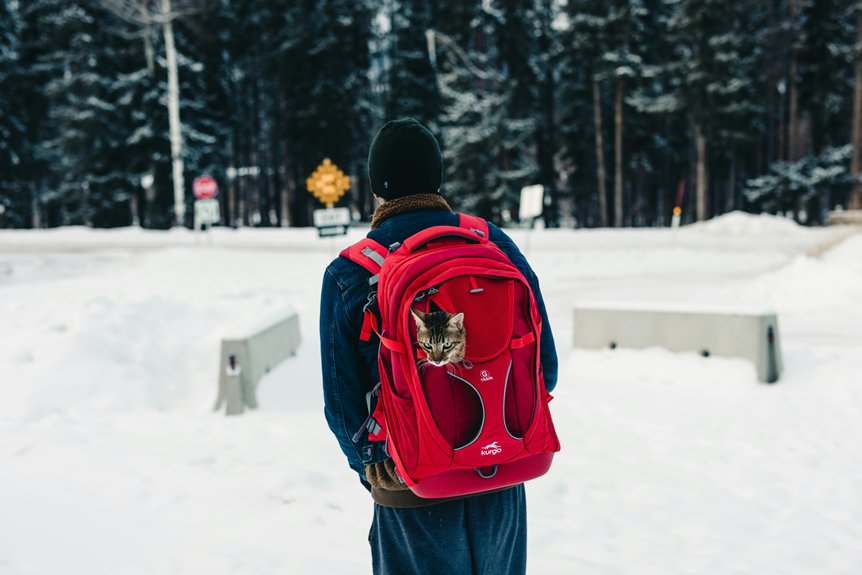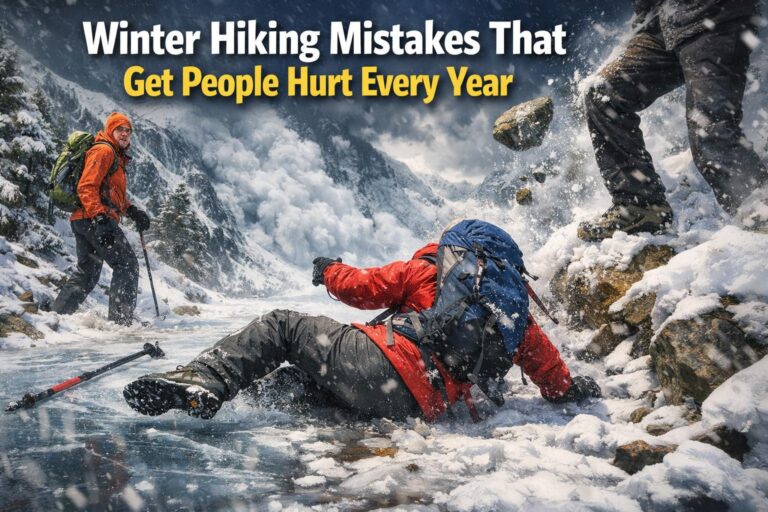
When you plan a camping trip in a remote national park, packing the right gear is essential for your safety and enjoyment. You’ll need to take into account factors like weather, terrain, and wildlife. From choosing a reliable tent to ensuring you have proper cooking equipment, every item plays a role in your experience. Let’s explore these essentials to make sure you’re well-prepared for your adventure in the great outdoors.
Choosing the Right Tent
Choosing the right tent is essential for a successful camping trip, and there are several factors to take into account.
First, consider the size. Think about how many people will be sleeping inside and any extra gear you’ll need to store.
Next, pay attention to the weight, especially if you’re hiking to your site. A lightweight tent is easier to carry.
Also, check the weather conditions; a three-season tent might suffice for mild climates, but if you expect heavy rain or snow, opt for a four-season model.
Finally, explore features like waterproofing, ventilation, and ease of setup.
Essential Sleeping Gear
When you’re out in the wilderness, having the right sleeping gear can make all the difference in ensuring a restful night.
Start with a quality sleeping bag rated for the temperatures you’ll encounter. Look for one that’s lightweight and packable but still offers warmth and comfort.
A sleeping pad is equally important; it provides insulation from the cold ground and adds cushioning for a better night’s sleep.
Don’t forget a compact pillow or a stuff sack filled with clothes for head support. If you’re camping in an area with insects, a bug net can keep pests at bay.
Finally, consider a sleeping liner for extra warmth and cleanliness.
With the right gear, you’ll wake up refreshed and ready for your next adventure!
Cooking Equipment and Utensils
While you might be tempted to bring along your favorite kitchen gadgets, packing the right cooking equipment and utensils is essential for a successful camping trip.
Start with a compact camping stove or portable grill to make cooking efficient. Don’t forget a lightweight pot and pan for boiling, sautéing, or simmering meals. A set of multi-purpose utensils, like a spatula, tongs, and a can opener, will simplify your prep work.
Invest in durable, reusable plates, bowls, and cutlery to minimize waste. A cutting board and a reliable cooler for perishables will also enhance your cooking experience.
Finally, pack a good cleaning sponge and biodegradable soap to keep your campsite tidy. This way, you’ll enjoy delicious meals in the great outdoors!
Navigation Tools and Maps
Maneuvering the great outdoors can be an adventure in itself, so having the right tools at your disposal is vital. A reliable GPS device is a must, as it provides precise coordinates and trail information.
However, don’t rely solely on technology; always carry a detailed topographic map of the area. Familiarize yourself with the map’s symbols and scale before heading out. A compass is also invaluable, especially if you find yourself off the beaten path. Make sure you know how to use it effectively.
Finally, consider downloading offline maps on your smartphone, but remember to bring a portable charger. With these navigation tools and maps, you’ll confidently explore remote national parks and avoid getting lost in nature.
Happy adventuring!
Safety and First Aid Supplies
No one wants to think about accidents while enjoying the great outdoors, but being prepared with safety and first aid supplies can make all the difference.
Start by packing a well-stocked first aid kit, including adhesive bandages, antiseptic wipes, gauze, and pain relievers. Don’t forget any personal medications you might need.
A multi-tool can be invaluable for various tasks, and a whistle can help signal for help if needed. Consider including a snake bite kit if you’re hiking in areas where snakes are common.
It’s also smart to carry a flashlight or headlamp with extra batteries for emergencies.
Finally, familiarize yourself with basic first aid techniques, so you’re ready to act if an accident occurs.
Stay safe and enjoy your adventure!
Clothing for Varying Weather
When you’re heading out for a camping trip, packing the right clothing for varying weather conditions can make your experience far more enjoyable.
Start with moisture-wicking base layers to keep you dry and comfortable. Layer up with an insulating mid-layer, such as a fleece, to trap heat. Don’t forget a waterproof and windproof outer layer to protect against rain and chilly winds.
Choose pants that are versatile; convertible ones can adapt to changing temperatures. Sturdy, breathable hiking boots are essential for rugged terrain. Pack a hat for sun protection and a beanie for colder nights.
Finally, bring extra socks and gloves for added warmth. Being prepared for any weather will keep you comfortable and ready to explore the great outdoors!
Food and Water Storage Solutions
To guarantee your camping trip runs smoothly, it’s crucial to have effective food and water storage solutions in place.
Start by packing food in airtight containers to keep it fresh and pest-free. Consider using a cooler with ice packs for perishables, ensuring they stay chilled throughout your adventure.
Don’t forget to bring a reliable water filtration system or purification tablets, especially if you’ll be near natural water sources. For convenience, store water in lightweight, collapsible containers that are easy to carry.
When setting up your campsite, keep food and water storage elevated and away from sleeping areas to prevent contamination.
Wildlife and Environmental Considerations
As you venture into the wilderness, understanding wildlife and environmental considerations is essential for both your safety and the preservation of nature.
First, keep a safe distance from animals; they’re wild and unpredictable. Never feed them, as it can alter their natural behaviors. Be aware of local regulations, especially regarding bear-proof food storage and waste disposal.
Use biodegradable soaps and minimize your footprint by sticking to established trails. Respect the environment by not disturbing plants or wildlife habitats.
Additionally, educate yourself about the ecosystem you’re entering; knowing native species can enhance your experience.
Finally, always pack out what you pack in, leaving no trace to maintain the beauty of our national parks for future generations.
Conclusion
By packing the right gear and being prepared for the unexpected, you can truly enjoy your adventure in remote national parks. Remember to choose a suitable tent, prioritize comfort with your sleeping gear, and equip yourself with reliable cooking tools and navigation aids. Stay safe with a thorough first aid kit and smart clothing choices. With thoughtful planning, you’ll not only embrace the beauty of nature but also guarantee a memorable and safe camping experience. Happy camping!






